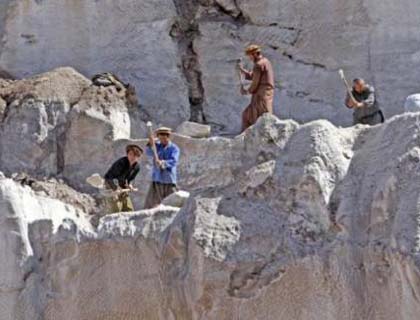KABUL - Afghanistan and Kazakhstan may become new global centers of rare earth metals’ production during the next several years with Kazakh government recently approving a state plan that involves a significant increase of production and development of the countries of rare and REM fields during the next four years.
Afghanistan’s Rare Earth Elements have been valued at around $1 trillion despite being one of the poorest nations in the world.
According to a survey report by US scientists, Afghanistan may be sitting on one of the richest troves of minerals in the world, loaded with minerals deposited by the violent collision of the Indian subcontinent with Asia.
The report further added that Afghanistan may hold 60 million tons of copper, 2.2 billion tons of iron ore, 1.4 million tons of rare earth elements such as lanthanum, cerium and neodymium, and lodes of aluminum, gold, silver, zinc, mercury and lithium.
In the meantime, Eugene Gerden in his report for Investor Intel, stated that one of the most valuable metal that was discovered in the country’s territory is praseodymium, which a silver metal that is used in the manufacture of specialty glasses and for the improvement of the properties of some alloys.
Among the other discovered rare earth metals are cerium, which is actively used in metallurgy, as well as lanthanum, neodymium, samarium and gadolinium, the report added.
Gerden is an international free-lance writer, based in St. Petersburg, who specializes on writing in the field of mining, metals and rare earth metals and has worked as a senior analyst in the department of mining of the Russian Ministry of Natural Resources for three years after graduation of the geology department of the St. Petersburg State University.
Afghanistan’s mineral resources were valued at $908 billion by U.S. Department of Defense’s Task Force for Business and Stability Operations (TFBSO) in 2010. However, Afghan government’s estimate is $3 trillion.
The resources provide the potential for Afghanistan to develop its economy, to create jobs and build infrastructure, as it goes into the future and lift Afghanistan out of poverty and fight crime and terrorism. (KP)

